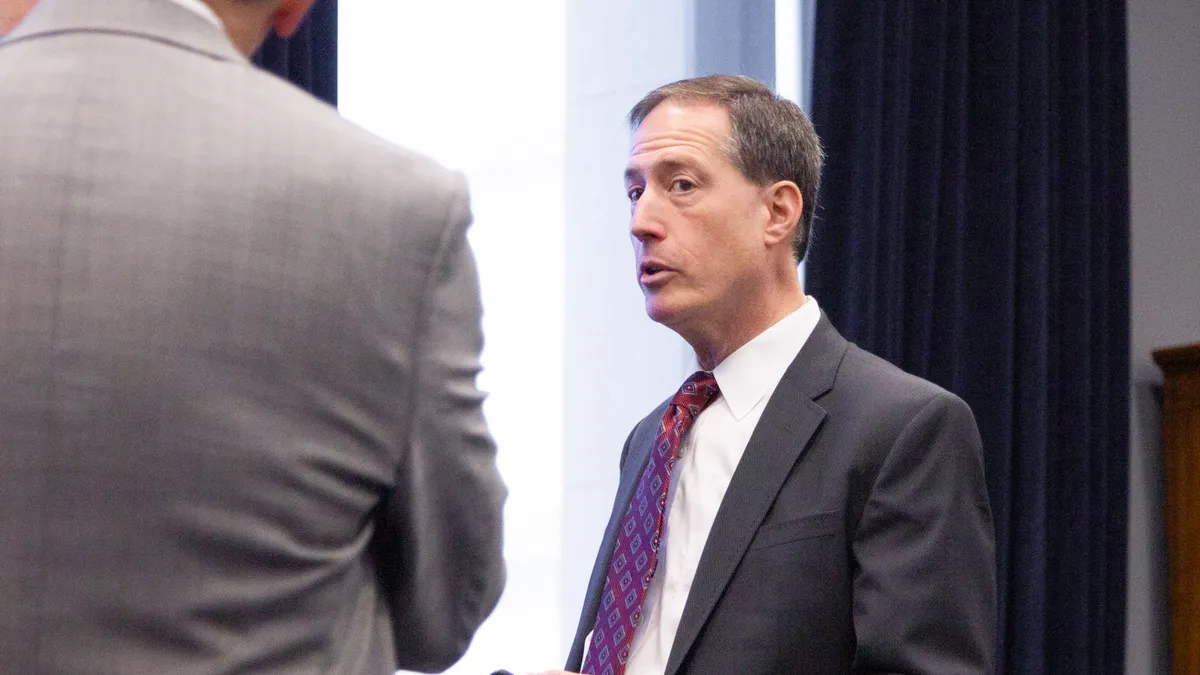Buried in FDA's recent 384-page budget justification is a proposal that would upend how the agency approves risky medical devices for life-threatening conditions, empowering regulators with a two-step approval process allowing companies to generate safety and effectiveness evidence after a device is already on the market.
Such a system would automatically sunset the initial approval if a company does not demonstrate appropriate levels of safety and effectiveness. Regardless, the idea within the FDA's fiscal 2020 budget proposal is raising alarms on Capitol Hill and among patient advocates worried it is the latest example of FDA's device center being too friendly toward the industry it is tasked with regulating.
"We strongly oppose the proposal because it would greatly weaken an already lax regulatory framework for approving high-risk devices. It's an unnecessary provision," Mike Carome, director of Public Citizen's Health Research Group, told MedTech Dive. "It would allow devices to come to market with some information about safety, but no information about effectiveness."
Industry's reaction: Don't look at us.
Mark Brager, vice president of communications for AdvaMed, told MedTech Dive the proposal "did not come from industry, it was definitely not us."
The proposal would allow "expedited access to devices that would otherwise be reviewed under the premarket approval or De Novo classifications pathways."
The idea does have one notable champion: Jeff Shuren, the director of FDA's Center for Devices and Radiological Health. In an interview with MedTech Dive, Shuren said the proposal has been "discussed publicly for several years now."
"Progressive approval is about an appropriate technology coming to market under one regulatory standard but can only remain on the market if it meets a second regulatory standard," Shuren said. "It is for technologies for which the potential public health benefit is so much greater, for example at least some of the breakthrough devices."
But a similar approach does not have backing from Shuren's former boss, Commissioner Scott Gottlieb.
Gottlieb, who stepped down earlier this month, sought to calm concerns among lawmakers that 2018 user fee legislation allowing conditional approval for animal drugs in some cases would set a harmful precedent.
"FDA believes conditional approval offers a unique pathway to address specific challenges of certain aspects of veterinary medicine that human medicine does not face. Therefore, FDA does not believe this pathway would be suitable for human medical products," he and FDA Center for Veterinary Medicine Director Steve Solomon wrote in a July 2018 letter to HELP Committee Chairman Lamar Alexander, R-Tenn., and Ranking Member Patty Murray, D-Wash.
Gottlieb reaffirmed during his last week as FDA commissioner he believes a stepwise approval should only be used for animal drugs, not human medical products.
"We were very clear that we thought this was a construct that made sense in the context of animal drugs," Gottlieb told MedTech Dive after his final testimony to Congress. "It wouldn't make sense in other product areas. We're not looking to do that, that's a concept that was narrowly tailored for the purpose of animal drug approvals."
But Shuren argued the provision has appropriate safety protections given the marketing authorization would sunset without appropriate data being submitted to FDA.
"This may be a very reasonable approach for technology and a responsible way for technology to come to the marketplace under which they still have a strong evidentiary basis to support their marketing with additional postmarket data collection in a timely manner that they need to provide to continue to demonstrate there's a reasonable assurance of safety and effectiveness. And if not, the marketing authorization would sunset. It puts teeth in the postmarket data collection," Shuren said.
It doesn't appear Congress is keen on taking up the proposal anytime soon.
House Energy & Commerce Committee Ranking Member Greg Walden, R-Ore., has "asked for legislative text that would help us understand the proposal," according to a Republican committee aide. And a Democratic aide told MedTech Dive lawmakers have "a number of concerns about this proposal."
While ideas in the president's budget are often called "dead on arrival" in Congress, Diana Zuckerman, president of the National Center for Health Research, said it is concerning FDA is pushing the idea.
She notes most commissioners do not have medical device experience and delegate responsibility to the CDRH director.
"This is exactly in contradiction to then-Commissioner Gottlieb's letter. This is a radical proposal. It is radical in a way that really puts patients at risk," Zuckerman said.



















